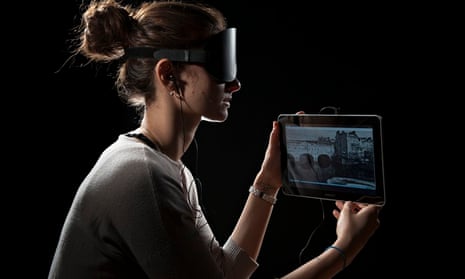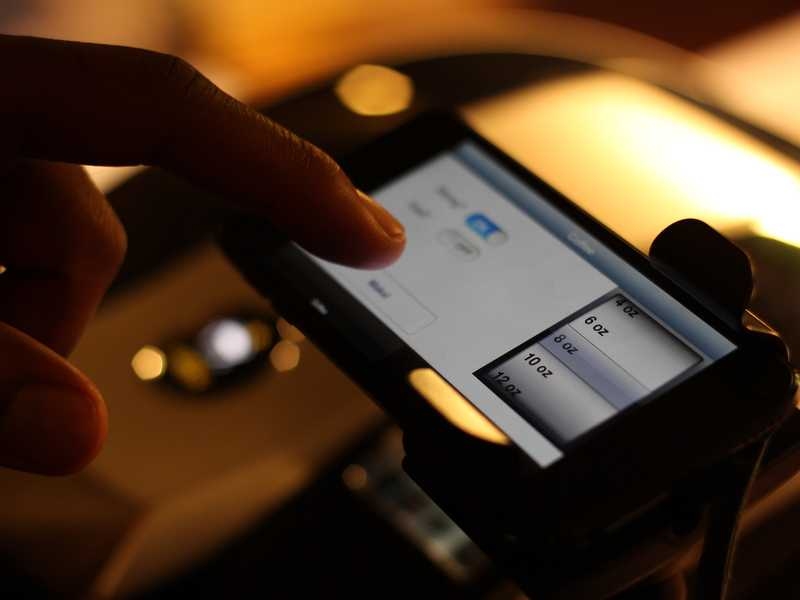Portable Technology for Low Vision: A Game-Changer in Accessibility
Portable Technology for Low Vision: A Game-Changer in Accessibility
Blog Article
Empowering Independence With Assistive Innovation for the Blind
The assimilation of assistive modern technology into the lives of individuals with aesthetic impairments represents a considerable advancement in promoting independence and self-sufficiency. From cutting-edge display readers to advanced wise canes, these tools not only boost day-to-day navigation and interaction yet also encourage users to engage meaningfully in various elements of life. As we explore the myriad advantages and real-world applications of these innovations, it becomes vital to examine the hidden variables that add to their effectiveness and the capacity for future developments in this important area.
Introduction of Assistive Innovation

The development of assistive technology is grounded in principles of inclusivity and empowerment. Innovations in software, equipment, and sensory improvements give users with choices tailored to their particular needs. From screen viewers that convert message to speech, to responsive tools that communicate details through touch, these devices change the means individuals engage with their surroundings.
Along with functional applications, assistive modern technology promotes better social inclusion and involvement in different fields, consisting of education and learning and work (Assistive technology for the blind). As research and development continue to develop, the possibility for assistive modern technology to additionally improve the lives of visually impaired individuals remains promising, leading the means for an extra equitable culture where everybody can flourish
Types of Assistive Tools
A selection of assistive gadgets have actually emerged to support people with aesthetic impairments, each designed to meet particular demands and boost day-to-day performance. These devices range from low-tech remedies to high-tech innovations, providing diverse choices for customers.
Low-tech tools include magnifiers and large-print materials that assist in reading and writing. Braille devices, such as Braille slates and stylus pens, allow tactile reading and interaction. Alignment and movement aids, like white walking canes, aid users navigate their setting safely.
On the greater end of the spectrum, digital magnifying systems and screen viewers supply considerable support. Digital magnifiers enable users to expand message and photos on displays, while screen viewers convert digital web content into manufactured speech, helping with accessibility to info on smart devices and computers.
Mobile phone applications additionally play a crucial function, giving attributes like text recognition and navigation assistance. Wearable innovation, such as clever glasses equipped with enhanced truth, is arising as a promising device to boost situational awareness.
Advantages of Assistive Modern Technology
The combination of assistive innovation substantially boosts the lifestyle for people with visual impairments. These innovations empower customers by promoting self-reliance, enabling them to navigate their settings extra properly and carry out everyday jobs with better convenience. Screen viewers and magnifying software permit people to gain access to digital info, fostering specialist and instructional possibilities that may have previously been out of reach.
Furthermore, assistive tools such as clever canes and general practitioners applications offer real-time navigating aid, boosting movement and safety. This increased autonomy not only improves self-confidence but also urges social engagement, allowing users to take part even more completely in their neighborhoods.
Assistive modern technology additionally promotes interaction, aiding individuals get in touch with others with voice acknowledgment and text-to-speech applications. This capacity is important for preserving connections and accessing critical details.
Additionally, the personalization choices readily available with several assistive innovations guarantee that users can customize tools to their certain needs, even more enhancing functionality and performance. On the whole, the benefits of assistive innovation for individuals with visual disabilities are profound, advertising a more inclusive society where everybody can pursue their objectives and desires.
Instance Research Studies and Success Stories
Highlighting the transformative effect of assistive modern technology, various case researches highlight exactly how individuals with visual impairments have effectively incorporated these devices into their everyday lives. One engaging example includes an university trainee that used display reading software program to browse online resources and academic products successfully. This technology not just facilitated her education however additionally improved her self-confidence in taking part in discussions and team projects.
An additional situation study includes a specialist who uses a smart device application designed for navigating and object acknowledgment. By using this app, he has regained autonomy in both his personal and job atmospheres, enabling him to commute separately and engage with colleagues extra effectively.
Furthermore, a retired person shared her experience with braille e-readers, which enabled her to access a large selection of literary works and stay gotten in touch with her area through book clubs.
These success tales emphasize the crucial function of assistive technology Read Full Article in promoting freedom, improving lifestyle, useful site and advertising social assimilation for individuals with aesthetic disabilities (Speech-to-text devices for low vision). By welcoming these ingenious devices, users can conquer difficulties and take possibilities that add to their professional and individual fulfillment

Future Trends in Assistive Innovation
Technology in assistive technology is positioned to redefine the landscape of assistance for people with visual disabilities. Arising trends highlight the integration of expert system (AI) and artificial intelligence, which enhance the functionality of devices that assist with navigating and info availability. For circumstances, AI-driven applications are now with the ability of interpreting aesthetic information in real-time, enabling users to engage with their atmosphere extra independently.
Additionally, the advancement of wearable innovation is advancing swiftly. Smart glasses equipped with augmented fact (AR) can provide audio descriptions of environments, changing how individuals communicate with public spaces. These gadgets not just advertise freedom but additionally foster social incorporation.
In Addition, the Internet of Points (IoT) is making homes smarter, enabling seamless connectivity between everyday appliances and assistive gadgets. This connection equips individuals by allowing computerized reactions and voice-activated controls tailored to private demands.
Conclusion
In verdict, assistive modern technology plays a critical function in encouraging individuals with visual impairments by boosting their freedom and interaction with their surroundings. The diverse variety of applications and gadgets offered not only helps with navigation and communication however also promotes social integration and possibilities for personal and expert growth. As improvements proceed in this area, the capacity for enhancing the lifestyle for those with aesthetic disabilities will certainly broaden, fostering better freedom and empowerment.

Report this page